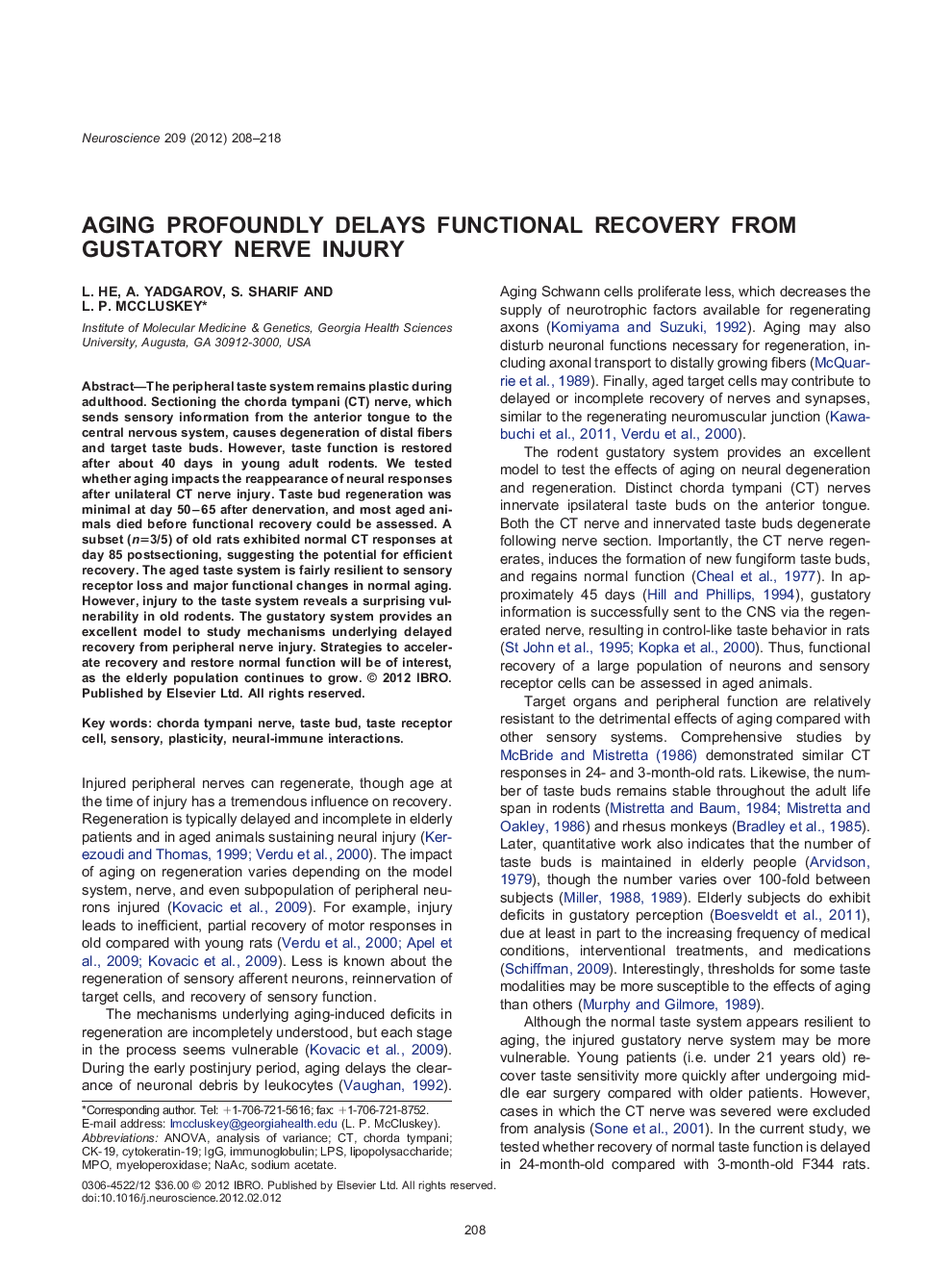| Article ID | Journal | Published Year | Pages | File Type |
|---|---|---|---|---|
| 4338534 | Neuroscience | 2012 | 11 Pages |
The peripheral taste system remains plastic during adulthood. Sectioning the chorda tympani (CT) nerve, which sends sensory information from the anterior tongue to the central nervous system, causes degeneration of distal fibers and target taste buds. However, taste function is restored after about 40 days in young adult rodents. We tested whether aging impacts the reappearance of neural responses after unilateral CT nerve injury. Taste bud regeneration was minimal at day 50–65 after denervation, and most aged animals died before functional recovery could be assessed. A subset (n=3/5) of old rats exhibited normal CT responses at day 85 postsectioning, suggesting the potential for efficient recovery. The aged taste system is fairly resilient to sensory receptor loss and major functional changes in normal aging. However, injury to the taste system reveals a surprising vulnerability in old rodents. The gustatory system provides an excellent model to study mechanisms underlying delayed recovery from peripheral nerve injury. Strategies to accelerate recovery and restore normal function will be of interest, as the elderly population continues to grow.
Graphical Abstract•••. Figure optionsDownload full-size imageDownload high-quality image (95 K)Download as PowerPoint slideHighlights▶Chorda tympani nerve transmits gustatory signals from taste buds to brain. ▶Nerve sectioning causes degeneration, though recovery occurs in young adults. ▶Aging delays taste bud regeneration. ▶Functional recovery is delayed and only occurs in a subset of old rats.
